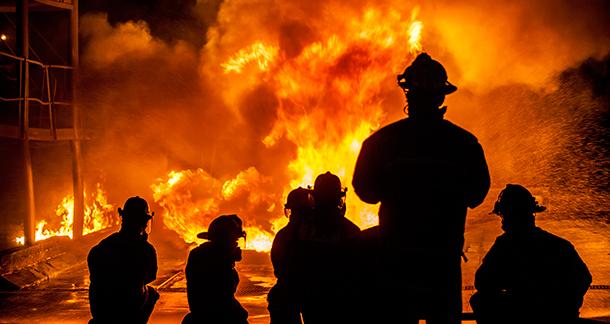Arson is a criminal violation committed when someone deliberately sets fire to or burns anything, and the perpetrator did so unlawfully and without reason.

Arson Defined
A criminal offence that occurs when someone deliberately sets fire to or burns anything, and the person behaved unlawfully and without reason, or the person did something that was a significant step toward committing the crime. [Mere planning is not a significant step toward committing a crime.]
The willful burning of another person’s home under common law; under legislation, the house does not have to be one owned by another person.
Any wilful or malicious burning or attempting to burn, with or without intent to deceive, a dwelling place, public building, motor vehicle or aircraft, or another person’s personal property, etc. Some jurisdictions define “arson” as the purposeful starting of a fire in a structure where people dwell; others regard the intentional starting of a fire in any building as “arson.”
At common law, a felony crime; it is described by Lord Coke as the malicious and willful burning of another’s home, by night or day.
Table of Contents
Arsonist Elements
To accomplish the crime, the home, or a portion of it, must first be burned; any portion burnt, no matter how tiny, suffices. The home destroyed must belong to someone else, but if a guy sets fire to his own house with the intent of burning down his neighbor’s, he commits a major misdemeanour, if not a crime. The burning has to be both malevolent and intentional.
At common law, the charge of arson does not extend beyond the burning of another person’s home. This felony is substantially expanded by legislation in certain jurisdictions, such as Pennsylvania, where it includes the burning of any barn or outhouse containing bay or grain; any barrack, rick, or stack of hay, grain, or bark; and any public buildings, church or meeting-house, college, school, or library.
